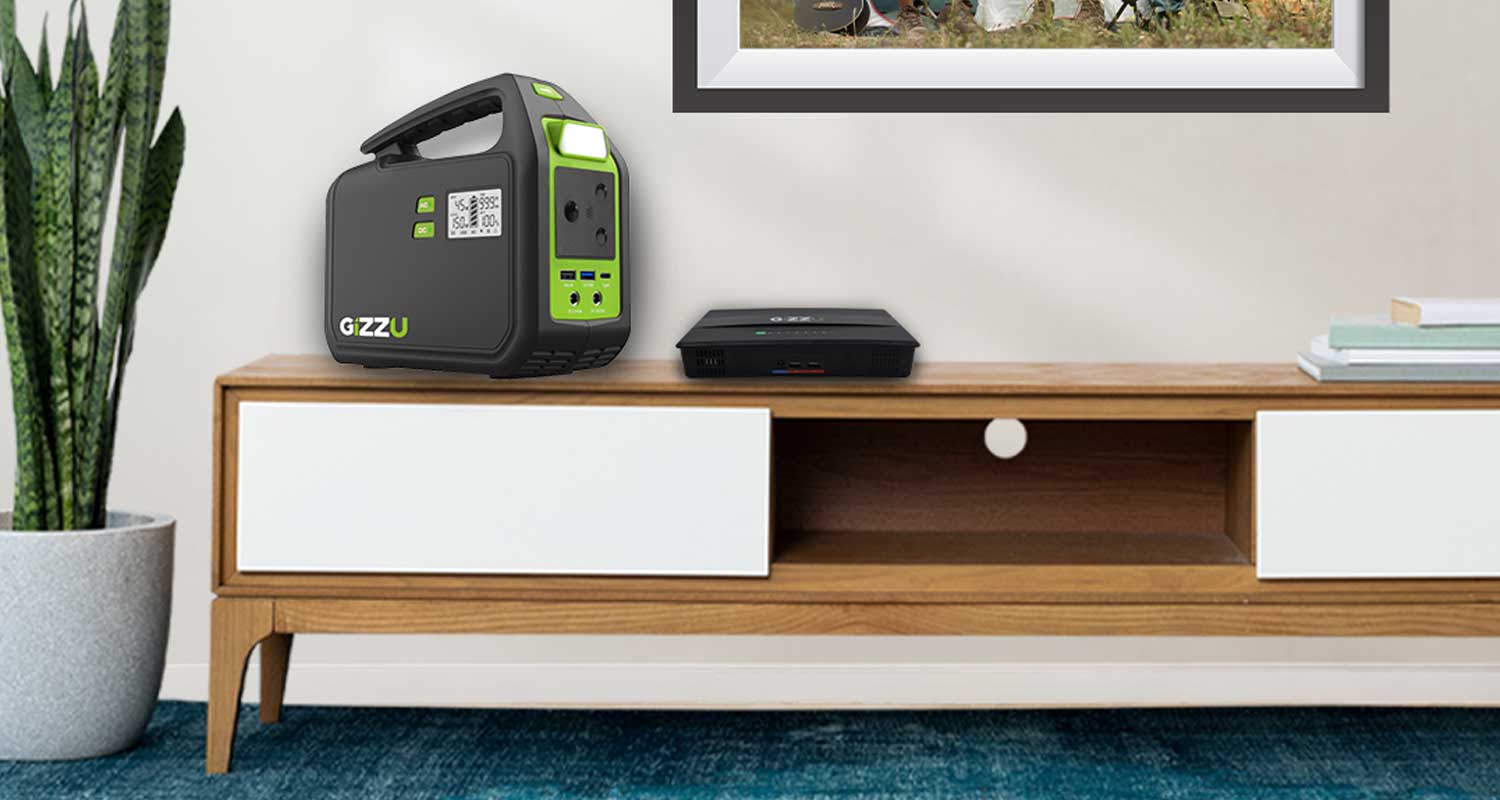 Syntech Distribution, one of South Africa’s leading technology distribution companies, is recalling a limited batch of its Gizzu 300Wh and 500Wh Portable Power Stations after receiving reports of a small number of devices overheating while charging, therefore posing a potential fire risk.
Syntech Distribution, one of South Africa’s leading technology distribution companies, is recalling a limited batch of its Gizzu 300Wh and 500Wh Portable Power Stations after receiving reports of a small number of devices overheating while charging, therefore posing a potential fire risk.
The reports were received over the last few days. In line with its stringent quality control processes and standards, Syntech immediately contacted its global manufacturing partner, which initiated an investigation. This investigation confirmed a temporary battery manufacturing flaw may have affected a small number of units in one particular batch of these models, produced between 1 November and 31 December 2022.
To resolve the matter, Syntech has engaged its relevant retail and distribution partners to stop the sale of this limited batch of products. This will allow the company to retrieve, test and replace any affected units in this batch.
What consumers should do
Syntech has developed a dedicated online tool to help consumers determine if their unit is impacted. Consumers who have purchased GPS300 and GPS500 Gizzu Portable Power Stations should visit www.syntech.co.za/gizzu-power-station-query-tool and enter their serial number to determine if their unit is affected. If it is, the site will provide guidance on how to proceed safely, and how to obtain a replacement or refund.
Ryan Martyn, director and co-founder of Syntech Distribution, said: “The safety of our consumers is, and always has been, our first priority. Even though this issue only affects a very small number of units in a particular batch manufactured in the last two months of 2022, we want to be absolutely sure that there is no safety risk for any of our consumers. As a responsible distributor, voluntarily recalling this batch is the right thing to do.
“While we know this is an inconvenience for both consumers and our retail partners, for which we are truly sorry, the good news is that the manufacturing flaw has been rectified and we will be receiving new stock soon. We know how important it is to keep the electricity flowing, so we will do everything in our power to replace affected portable power stations as soon as possible,” Martyn said.
“We all know that load shedding is with us for the foreseeable future. Lithium-ion batteries are becoming increasingly popular for use in a range of devices, including inverter and solar batteries, battery backup systems, and power banks. They are becoming a permanent presence in our homes and businesses. It’s important that consumers are aware of the potential risks of batteries and how to use them safely.”
Ways to keep your lithium-ion battery product safe
- Lithium-ion batteries are generally safe and unlikely to fail, but only so long as there are no defects and the batteries are undamaged. Damage from improper use, storage and overcharging may cause lithium-ion batteries to fail.
- Proper maintenance of lithium-ion battery products can help prevent accidents and ensure improved performance and battery life over time. Keeping the product clean, ensuring that venting slots are clear of dust/obstructions and ensuring that the product can cool itself effectively are all vital for the upkeep of lithium-ion battery products. Periodic cleaning should be carried out without any liquids or compressed air.
- We recommend the use of a universal voltage protector when charging lithium-ion battery products via AC input.
- Do not deplete lithium-ion battery products below 10% capacity as this can cause battery degradation.
- Do not use a lithium-ion battery product if it has been dropped, shows visible signs of damage/bulging, or emits irregular noises.
- Ensure that all connected devices, charging adapters, cables and extension strips are properly certified for intended use, as well as that they are compatible with your lithium-ion battery product. The use of third-party, inexpensive power cords and extension strips can result in damage to connected devices or to your lithium-ion battery products.
- Do not expose lithium-ion battery products to harsh environments. For example, do not leave the product exposed to direct sunlight, in very high temperatures, for extended periods of time.
- If your lithium-ion battery product is kept in a state of full charge, this may result in the battery ageing quickly. It’s best to use these products relatively soon after they’re fully charged.
- Do not make unauthorised changes or repairs to lithium-ion battery products. Doing so may cause damage to the product or render it unstable.
- Avoid recharging lithium-ion battery products overnight, unattended, and positioned near/on any flammable materials or surfaces.
- If your lithium-ion battery product becomes unusually hot while being used or charged, you should disconnect all devices and input charge immediately. It’s essential you let the product cool down away from any flammable materials and surfaces.
- In the unlikely event that a lithium-ion battery product fails and catches fire/starts smoking, please utilise a standard ABC or BC dry chemical fire extinguisher to douse the flames. Lithium-ion batteries do not contain any actual lithium metal, so this will be sufficient. It is not advisable to utilise water. Ensure that you isolate a failed or damaged lithium-ion battery product from flammable materials and surfaces so that it can be properly contained.
This promoted content was paid for by the party concerned




